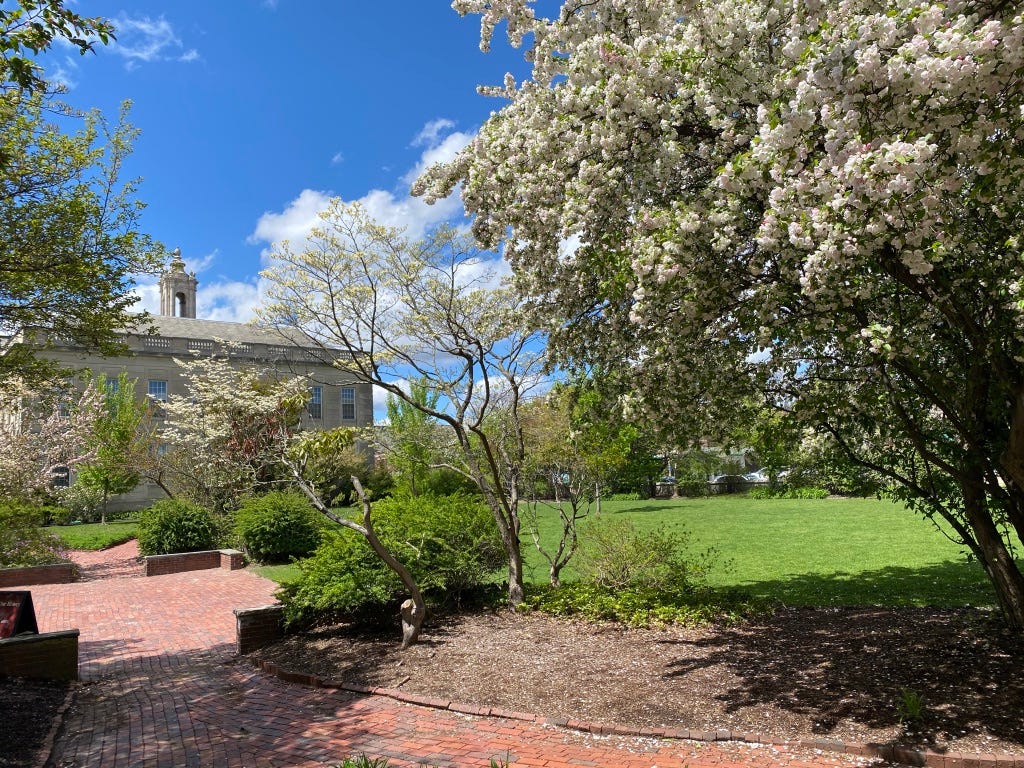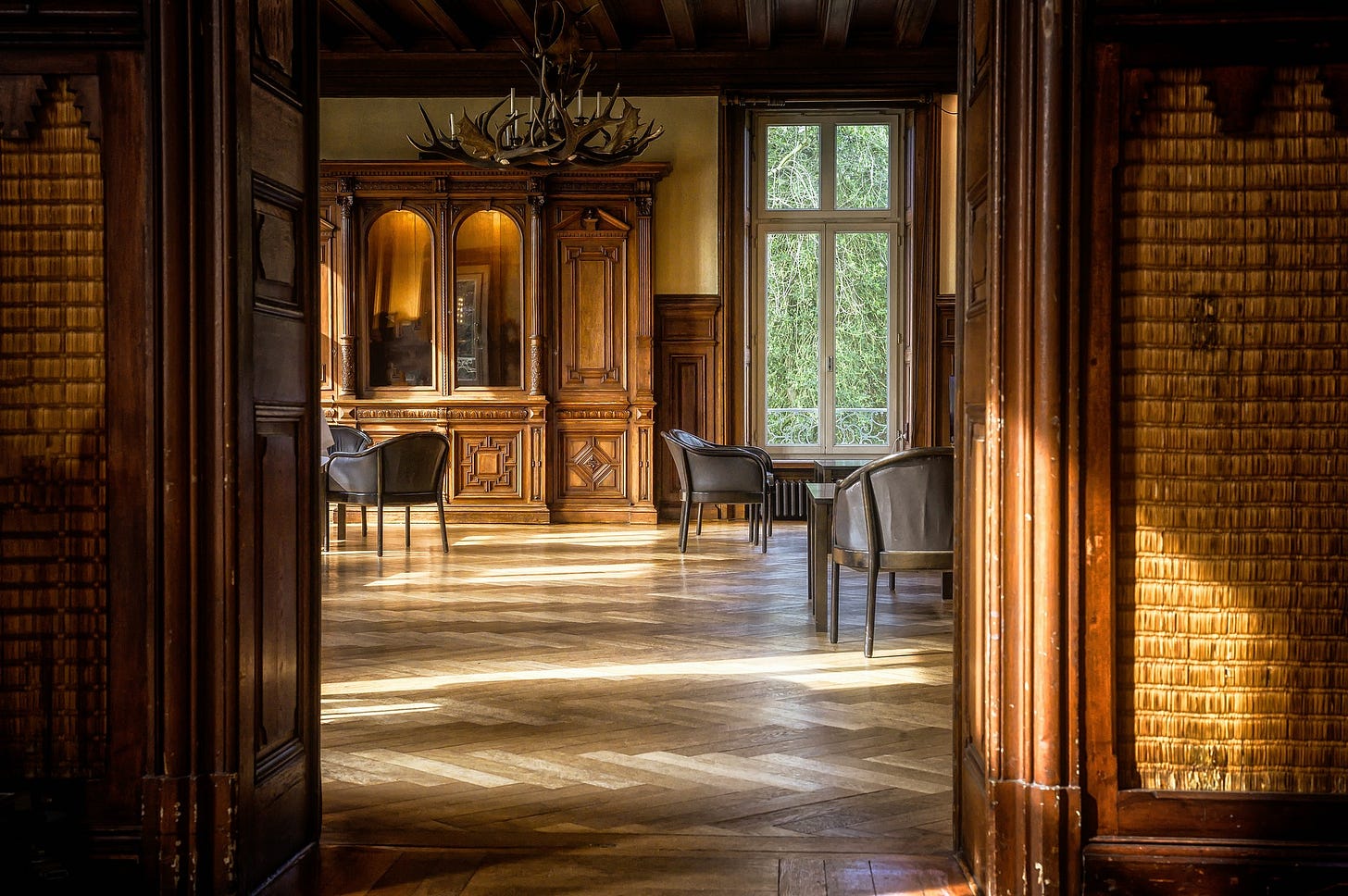April may not always win the “cruelest month” prize, but this year, it sure at least placed.
In my extended community, three beautiful souls left this physical plane, one a week like some kind of horrific clockwork. First was Lucas, a young man I didn’t really know but who meant a lot to people close to me, and to the theatre and burlesque communities of which he was such a vital, bright part. Next was Jaie, my theatre colleague and friend, and the one whose death touched me most personally. Then, on the 28th, Dave Policar died. He’d been fighting cancer for years at this point and had been quite ill, but seemed to be on a slight upswing when a sudden heart attack took him down.
I wouldn’t ordinarily link to a Facebook profile when pointing someone to a person they might not know. But Dave was different, and Facebook was a place he inhabited fully, fearlessly, and publicly. Since his memorial the other night, I've been thinking how very fully Dave lived his online life, how vulnerable he made himself but also how much he shared his thoughts, insights, debates and hobby-horses with people—hundreds of them, some of whom he never met in person but who showed up at his memorial anyway. They came, and sang, and listened, I imagine because they wanted to feel in person the profound sense of community they’d experienced only virtually.
I didn’t know Dave deeply; we encountered each other in various shows and events throughout the years, and I directed him in a show once, to my delight. Yet near the end of his life I felt, too, the power of the conversation he created online. His frequent, thoughtful, heartful, provocative posts (and the ensuing discussions) were one of the last remaining reasons I was reading Facebook. I screenshotted some of his poems, absurd song filks, and musings about his own trauma healing process. And even grieving at his memorial, among many people I’d not seen in ages (and who kept commenting that they hadn’t seen each other in ages, either: I wasn’t alone even in this), I found myself envying that kind of connectedness: the ways that everyone talked about how much Dave meant to them.
What do we mean to each other online, anymore?
I've been writing online for more than 20 years, and in college I even managed a poem-a-day email list that I got a lot out of. In the early days, 2000 and 2001, I started to build a kind of community on Livejournal, and for the first time in my life I started to feel connected to others, and feel that I mattered to them deeply, even if they didn’t know me.
But as I got older I grew more private, and learned the hard way how talking about one's personal life can hurt others, as the lines between public and private, anonymity and celebrity, became blurred. Dave had a very special talent for speaking solely about his own experience. If he wasn't speaking about something more abstract or publicly shared (like a piece of media, or a philosophical concept, or a political notion), he managed to speak exclusively for himself in a way that I think didn't always succeed in not offending others, but seemed to always succeed in not telling stories that weren't his to tell. Even when noting and expanding upon a conflict he’d had elsewhere online, he would always only repost his own comment that the conflict had sparked, as a means of sparking new discussion. Shit-talking others by name or inference was never on the table.
I've gotten better at that over the years, though I still slip at times. One of the ways I become attached to other people is through their stories, sometimes passionately so, and it can be difficult to express my feelings or insights that I have as a result of that close contact with another person's experience without telling anything of the details that might reveal whose story it is.
I think part of it is that I fear the color drains out of stories when the details disappear; perhaps this is what makes fiction so compelling to me, and something about my own fiction that I could improve. But as Spalding Gray said about his own storytelling, often, I don't know how to make things up.
There’s also the problem of the way social media has so drastically changed the ways that people interact online. I think often and with great fondness of the early days of Livejournal, the communities that developed there, and later, what was for a brief period called the “blogosphere,” where I joined other people who loved to talk about their particular interests and lives in a detailed, personal, yet anonymized way. In the comments we would talk with each other about it all. The trolls would be banished (mostly), and nuanced conversation would flow. Now, it seems like there are only a few ways to be online: extremely public in a way attached to one’s real name, with all the (actual physical and mental) danger that involves. Or hidden behind one’s own “content,” writing impersonally on a topic in search of an audience.
I was happy to hear the other night from someone I know that he'd been appreciating my writing here on Substack. I don’t know quite how much I believe in it, but it seems possible to me that this could be a place where community could grow around shared interests, and conversation could flow, at least for a little while. I see it here, in some people’s ‘Stacks, including writers like Cathrynne Valente, whose Christmastime screed about this very subject thrilled and angered and enlivened me late last year.
Alright alright, but what’s with that title?
Hold onto one another. It’s the subject line of an email I wrote, in the fall of 2019, before the world changed (again, again) forever, when I’d left the memorial of another distant friend who’d died suddenly, too young. In that email I reached out to people I’d known back when I’d known the people who’d been killed in the dive boat fire off San Diego that September. I recognized—just as I did the other night, again, again, how easy it is for people to drift apart from one another, people who mattered to each other once, and who, when the time comes, discover that they still matter to each other, and wish they had done something about that while they had the chance.
All this death, all this thought, all this consideration of how people stay connected, or don’t, has me thinking that I’d like to try and form a community here somehow, to open up discussion with people. I don't pretend I have nearly the alacrity and flexibility of mind, nor the same kinds of interests, that Dave had. Nor do I imagine that I have the energy and verve for online discourse the way I did back in the day.
But I like to think that there are some people who get a lot of value out of what I have to say, and might engage with it more in the present. I'd like to think of myself as someone who affects those around them even a tenth of what it seems Dave did, and when I reach that day, whenever it may come, I hope to know that my life touched people and helped them touch each other.
I know that for that to happen, I need to stretch out my hand, and keep doing it, even when it gets hard.
But I’m also out of practice at community chat. The blogosphere was a long time ago, and these days, on the Livejournal graveyard that is Dreamwidth, my (extremely) personal posts may or may not be seen, or commented on, by perhaps five people. I have been honored to be a part of a group of six women who meet up, sometimes virtually, often in person, to chat and be in each other’s presence, and discuss things that matter to them. We call it a salon, and I have often felt how much I’d love to have such a thing online, too.
Part of the trouble, I think, is the ongoing difference between the philosopher and the novelist. A person like Dave, with his voracious mind, continually invites lively discussion and impassioned debate. A fiction writer and essayist writes things they hope others will read and be affected by, but never quite knows for sure how they are coming across, or whether their message is being received accurately to how they intended it. Even in this age of social media, a certain kind of writer's life is still mostly solitary, the feedback they receive is late, mistranslated, and always surprising in one way or the other.
I wonder though, if you might join me.
Substack has developed a few new tricks in the last little while. One is Chat, which allows subscribers to talk with each other, and me, in my little digital living room. The other is Notes, which forms a Twitter-like social network linking the Substacks that you read. And of course, there are comments on these posts, with their old-style threading.
I guess what I’m asking is: won’t you be my neighbor?
I’d like to extend an invitation to everyone reading this, and everyone who might, to join me in discussion. To engage the posts I make, or to start conversations about other things. To join me in my salon. Because I want us to connect, to touch, to talk to each other, to see each other as clearly as we can, while we still can. What else are we here for?
What do you say?




I am already here from another friend who is building their presence in this community so am happy to add you to my reading here. I'll be curious to see how it catches on.
It was good seeing you in person and getting a hug. And I love that you are reaching back to pull community into your life more intentionally as well as being honored to be included, as always.
I would love to see more online community built out from the tools we have. I find that I'm also much more hesitant to share as openly as I once did. One of the issues for me, weirdly enough, is that my life is so good that talking about it hurts other people who haven't found stability and contentment, or who are struggling with challenges that I don't face. Another issue is that I find that jumping between platforms is a challenge for me--when I finally joined FB, that was pretty much the end of my blogging elsewhere, and when I've tried to switch to other platforms, either I am overwhelmed, or there aren't enough people there to generate a level of conversation that engages me. But I continue to want that and to hope that it will emerge. So I'll be happy to give this a shot!